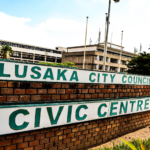A silent crisis is unfolding in our communities—one that threatens the very heart of our nation’s future. Atane, the street name for the prescription drug Atarax, is no longer just a medication used to treat anxiety and mental health disorders. It has become a tool of destruction in the hands of our vulnerable youth, many of whom are abusing it for its sedative and intoxicating effects.
The result? A growing population of teenagers—some as young as 13—wandering the streets in a daze, dropping out of school, and spiraling into addiction. The term “zombies” is no longer a dramatic exaggeration; it’s an accurate reflection of what’s happening in our townships.
This situation demands more than concern—it demands urgent, coordinated action.
Authorities cannot afford to be reactive. We must be proactive, decisive, and united in our efforts to eradicate this scourge. The Ministry of Health, the Drug Enforcement Commission (DEC), the police, and other regulatory agencies must rise to the occasion. The illegal sale and distribution of Atane—often through informal networks, unregulated pharmacies, or street dealers—must be met with zero tolerance.
We need tighter control over how prescription drugs are dispensed. Pharmacies must be monitored, and rogue outlets prosecuted without delay. The black market has no place in a society that values the well-being of its children. Stronger surveillance and routine inspections are needed, not just in urban areas but across the country.
But enforcement alone is not enough.
This is also a battle for hearts and minds. We need an aggressive national awareness campaign to educate the public—especially young people and their families—about the dangers of Atane abuse. Knowledge is a powerful weapon, and right now, too many parents are unaware that their children may be dabbling in substances that could destroy their lives.
The Church, schools, and civil society must also play a vital role. Faith-based organizations have the trust and moral authority to reach deep into communities, offering counseling, mentorship, and rehabilitation programs. Our schools must go beyond academics and become safe spaces for engagement, guidance, and support.
If we wait for this crisis to “naturally fade,” we risk losing an entire generation to addiction, crime, and mental health breakdowns. The cost of inaction will be far greater than the cost of intervention.
Chester Mweenda of Open Development Media has already raised the alarm, and he is not alone. Parents are crying. Teachers are overwhelmed. Communities are scared. We must listen.
This is not just a health issue—it is a national emergency.
Let us act swiftly, boldly, and with compassion. Let us stand together—government, community, and faith institutions—to say no to Atane, and yes to life, hope, and the promise of a better future for our youth.
The time to act is now.











